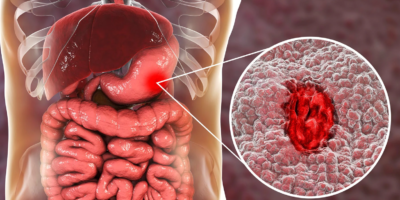Fourteen to 20 percent of American adults have at least occasional heartburn. The medical name, gastroesophageal reflux disease (GERD), describes the basic problem—a backwash of acidic stomach contents into the esophagus. The causes of GERD include laxity of the lower esophageal sphincter, slow emptying of the stomach, obesity, and hiatal hernia (a condition whereby the upper stomach slides above the diaphragm, a dome of muscle that normally separates the lungs from the stomach and intestines). Pregnant women may develop heartburn due to the pressure exerted by the developing fetus. The typical symptoms of GERD, usually worse after meals, are burning pain behind the breastbone and occasional nausea.


1. Lemon Zesty Squash
How it works: Citrus peels contain D-limonene, a naturally occurring chemical that provides the characteristic flavor and fragrance. Taking limonene as a supplement has been shown to reduce heartburn. Exactly how it works isn’t known. Limonene may protect the esophagus from stomach acids and increase normal motility of the esophagus.
- PREPARATION:
- 2 large organic lemons, washed and dried
- 1 tablespoon (15 ml) olive oil
- 1½ teaspoons (8 ml) fresh lemon juice
- ¹∕8 teaspoon freshly ground black pepper
- 2 cups (240 g) chopped zucchini
- ¼ cup (10 g) chopped fresh basil
- 1½ tablespoons (6 g) crushed fresh oregano
- DIRECTIONS:
With a lemon grater or zester, zest (remove the outermost skin) the lemons; set aside.
In a small bowl, whisk together the olive oil, lemon juice, and pepper. Set aside.
Steam the zucchini for about 10 minutes until tender but still firm. Drain and transfer to a serving bowl while still warm. Drizzle the oil mixture over it. Add lemon zest, basil, and oregano and toss. Serve warm.
- YIELD: 04 APPLICATION
2. E-ssential Breakfast
How it works: Turmeric contains the anti-inflammatory and antioxidant compound curcumin. In lab experiments, curcumin reduces esophageal inflammation. The outer rings and peel of the onion contain the flavonoid quercetin. Quercetin combined with the vitamin E—found in canola oil, sunflower seeds, and olives—has been shown in experiments to reduce stomach acid and esophageal inflammation.
- PREPARATION:
- 1 tablespoon (15 ml) canola oil
- 1 medium-size sweet onion, diced
- 1 block (14 ounces, or 390 g) firm tofu, cut into small cubes
- 1 cup (100 g) pitted and sliced black olives
- ¹∕8 teaspoon turmeric
- ¹∕8 teaspoon freshly ground black pepper
- 1 tablespoon (3 g) chopped fresh basil
- 2 tablespoons (18 g) sunflower seeds
- DIRECTIONS: Heat the oil in a skillet over medium heat. Braise the onion until tender and translucent. Stir in the tofu and olives and continue to cook, stirring and sprinkling with the turmeric and pepper, 5 to 7 minutes. Remove from the heat and toss in the basil and sunflower seeds. Serve.
- YIELD: 04 APPLICATION
3. Oatmeal and Slippery Elm Porridge
How it works: Slippery elm and oatmeal are anti-inflammatory and soothing to irritated mucous membranes—in this case, those lining the lower esophagus. In addition to containing mucilaginous substances, slippery elm can stimulate gastrointestinal mucus secretion. (Mucus coats and protects all mucous membranes.) You can find powdered slippery elm in natural food stores.
- PREPARATION:
- 1 cup (235 ml) water
- ½ cup (40 g) rolled oats
- ¼ cup (about 13 g) slippery elm bark powder
- ¼ teaspoon ground cinnamon
- Honey, stevia, or agave nectar
- DIRECTIONS: Boil the water in a saucepan. Add the oats, slippery elm bark powder, and cinnamon. Stir until the oatmeal is cooked, adding more water as needed. Sweeten to taste.
- YIELD: 1 To 2 SERVINGS
4. Chamomile, Peppermint, and Licorice Tea
How it works: Chamomile, peppermint, and licorice relieve symptoms of indigestion. Chamomile and licorice are anti-inflammatory. Peppermint speeds emptying of the stomach and reduces pain. Do not use licorice daily for more than two weeks. Long-term use can cause water retention, lower potassium, and elevate blood pressure. Occasional use is fine. If you have high blood pressure or take a diuretic, use anise or fennel instead.
- PREPARATION:
- 1½ cups (355 ml) water
- 1 teaspoon (1 g) dried chamomile flowers
- or the contents of a chamomile tea bag
- 1 teaspoon (1 g) dried peppermint leaves
- ¼ teaspoon licorice root, or ¼ teaspoon aniseeds or fennel seeds
- DIRECTIONS: Boil the water in a saucepan. Turn off the heat. Add the herbs. Cover and steep 20 minutes. Strain and sip.
- YIELD: 1 To 2 SERVINGS
Fact or Myth?
- PEOPLE WITH GERD SHOULD AVOID PEPPERMINT AND SPEARMINT. Myth. Although it’s true that mint relaxes the lower esophageal sphincter, it also relaxes the pyloric sphincter, the band of muscle between the stomach and small intestine. In that way, mint increases the emptying of stomach contents into the small intestine. Furthermore, mint has not been shown to worsen GERD symptoms.
- PEOPLE WITH GERD HAVE ABNORMALLY ACIDIC STOMACH CONTENTS. Myth. Stomach contents are supposed to be acidic. Even people with weakly acidic reflux develop heartburn. The problem is that the esophagus is normally alkaline and can’t neutralize very much acid.
Lifestyle Tip
- Review your medications and dietary supplements with your doctor. Some can worsen GERD.
- Avoid foods that relax the lower esophageal sphincter, thereby aggravating GERD. Examples include coffee (even decaffeinated coffee), tea, chocolate, alcohol, carbonated beverages, cow’s milk, fatty foods, spicy foods, citrus juice, and tomato juice. Some of these foods also increase stomach acidity.
When to Call the Doctor
- You have yet to be evaluated for heartburn and have symptoms more than twice a week.
- You develop signs of extension of reflux to your throat and mouth (sore throat, sinusitis, or loss of tooth enamel).
- Acid reflux causes you to awaken repeatedly during the night.
- You develop severe pain in your upper abdomen.
- You vomit blood or material that resembles coffee grounds.
- You aren’t sure whether your chest pain is from heartburn or a heart attack. The pain of heartburn tends to be sharp and burning; heart attack more often causes a feeling of chest tightness and pressure, as well as dizziness, sweating, and shortness of breath. However, the two can be difficult to distinguish.






Leave a Reply